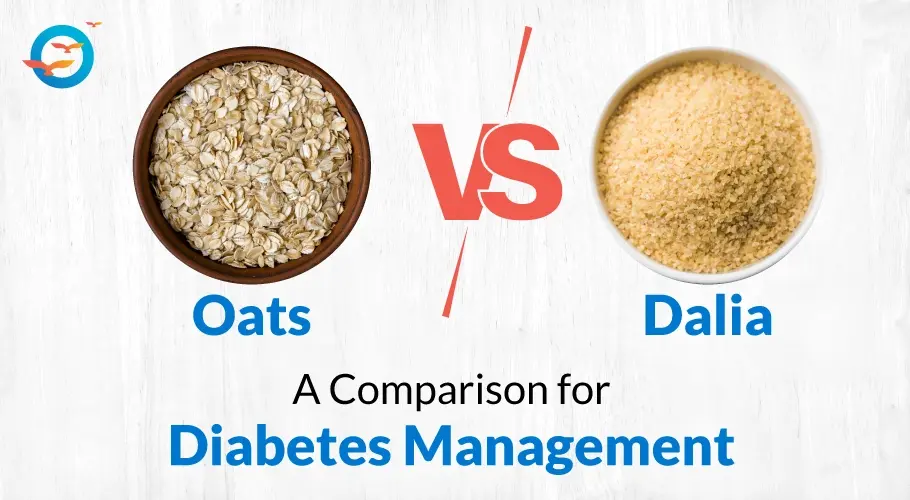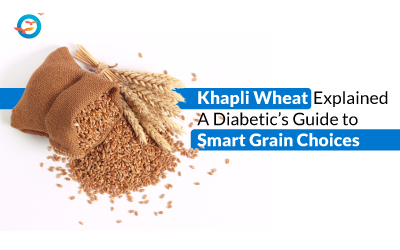Is Watermelon Good For Diabetics?

Watermelon for Diabetic Patients
Watermelon, with its vibrant red flesh and refreshing sweetness, is a popular summer fruit. But if you have diabetes, you may wonder whether indulging in watermelon is a good idea. This blog will explore the benefits and potential concerns of including watermelon in a diabetic diet.
Nutritional Profile of Watermelon
Watermelon is low in calories and high in several vital nutrients, making it a nutritious addition to many diets.
Here’s a quick look at what a 100-gram serving of watermelon offers:
| Calories | 30 |
| Carbohydrates | 8 grams |
| Sugars | 6 grams |
| Fiber | 0.4 grams |
| Protein | 0.6 grams |
| Vitamin C | 8.1 mg (13% of Daily Value) |
| Vitamin A | 569 IU (11% of Daily Value) |
| Potassium | 112 mg (3% of Daily Value) |
Benefits of Watermelon for Diabetics
1. Hydration:
Watermelon is about 92% water, making it an excellent choice for staying hydrated, especially during hot weather.
2. Low in Calories:
Its low-calorie content means you can enjoy a generous portion without consuming too many calories, which is beneficial for weight management.
3. Rich in Vitamins and Antioxidants
Watermelon is a good source of vitamins A and C, which are essential for skin health and immune function. It also contains antioxidants like lycopene, which can help reduce inflammation.
4. Glycemic Index and Glycemic Load
Although watermelon has a high glycemic index (GI) of 72, its glycemic load (GL) is relatively low at 5 per 100-gram serving. Glycemic load considers the carbohydrate content in a typical serving, giving a more accurate picture of how it affects blood sugar levels.
Potential Concerns
1. Sugar Content:
While natural, the sugars in watermelon can still impact blood glucose levels. Moderation is key to preventing spikes in blood sugar.
2. Portion Control:
Overeating any fruit can lead to an excess intake of sugars and carbohydrates. It's essential to be mindful of portion sizes.
3. Individual Responses:
People with diabetes can react differently to various foods. Monitoring your blood sugar levels after eating watermelon can help you understand how it affects you personally.
Tips to Include Watermelon in a Diabetes-Friendly Diet
1. Moderation is Key:
Enjoy watermelon in small portions. A serving size of about 1 cup (150 grams) is a reasonable amount.
2. Pair with Protein or Healthy Fats:
Combine watermelon with a source of protein or healthy fats, such as a handful of nuts or a slice of cheese, to help stabilize blood sugar levels.
3. Monitor Blood sugar:
Keep track of your blood glucose levels before and after eating watermelon to see how it affects your body. Adjust your intake accordingly.
4. Balance Your Diet:
Incorporate watermelon as part of a balanced diet that includes a variety of fruits, vegetables, lean proteins, and whole grains.
FFD Special Advice
- It is always advisable to have fruit in between meals as a snack.
- The best time to have fruit is before work out.
Do you want to know more about this, Can Diabetics Have Litchi?, visit our blog.
Conclusion
Watermelon can be a part of a healthy diet for people with diabetes when consumed in moderation and with attention to portion sizes. Its hydration benefits, low calorie content, and rich nutrient profile make it a refreshing and nutritious choice.
As with any dietary decision, it’s important to consider individual responses and consult with your healthcare provider to determine what works best for you.
Enjoy the sweetness of watermelon while keeping your health goals in check!
FAQs
Does watermelon raise blood sugar levels?
Watermelon contains natural sugars, which can raise blood sugar levels if consumed in large amounts. However, eating it in small portions and pairing it with protein or healthy fats can help stabilize blood sugar.
What is the best time for diabetics to eat watermelon?
It is best to have watermelon between meals as a snack or before a workout to help the body utilize the natural sugars efficiently.
How much watermelon is safe for diabetics?
A serving of about 1 cup (150 grams) is a reasonable portion for diabetics. Monitoring blood sugar levels after eating watermelon can help determine the right quantity for each individual.

